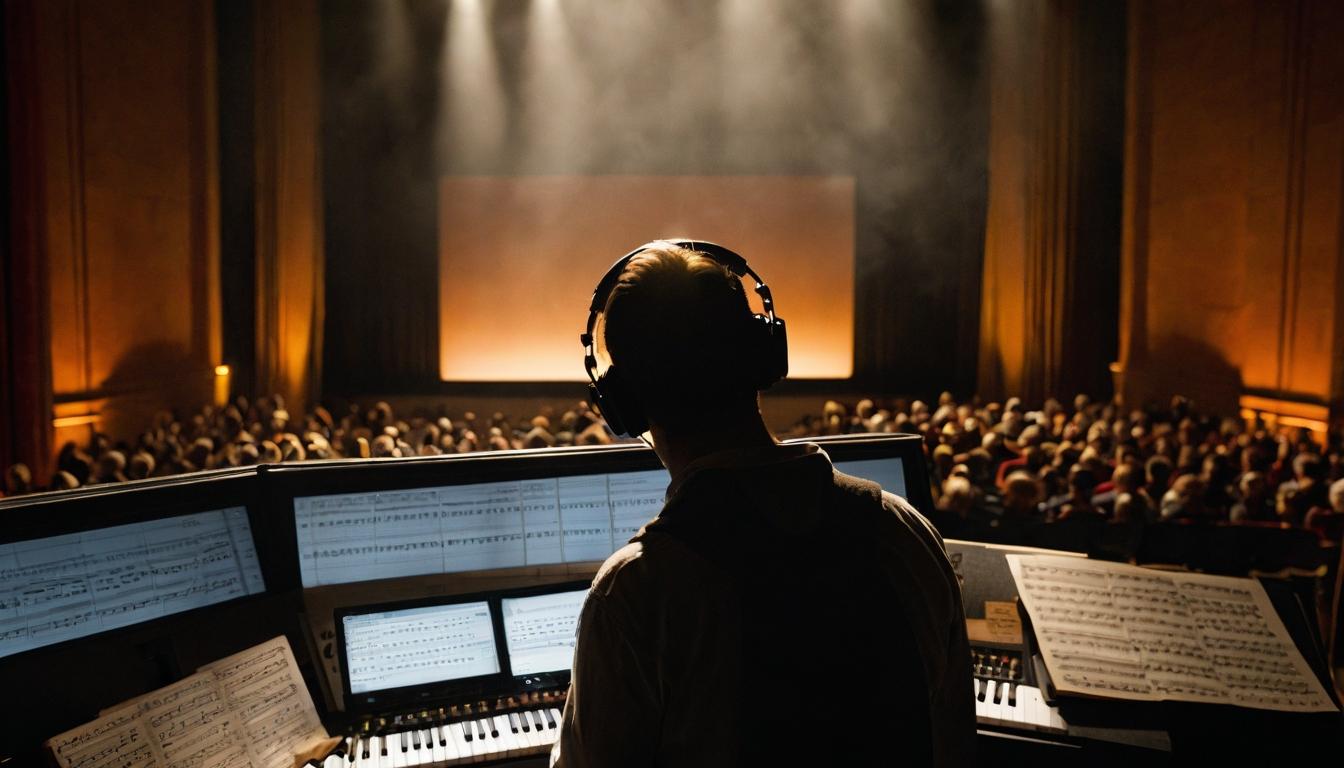In the dim glow of a movie theater, as the opening credits roll, something remarkable happens long before the first line of dialogue is spoken. The soundtrack begins to work its magic, weaving an invisible thread that connects audience to story in ways most viewers never consciously notice. While critics and fans debate plot twists and CGI effects on sites like Rotten Tomatoes and IMDb, the true unsung hero of cinema often plays in the background—literally.
Consider the haunting piano melody in 'The Shawshank Redemption' that somehow makes prison walls feel like places of hope, or the pulsing synth beats of 'Drive' that transform Los Angeles into a neon-drenched dreamscape. These aren't just background noises—they're emotional roadmaps carefully crafted by composers who understand that what we hear influences what we feel far more than we realize. Variety recently reported that studios are increasingly investing in original scores, recognizing that a strong musical identity can become as iconic as any visual element.
Behind every great soundtrack lies a fascinating collaboration between director and composer that rarely makes the headlines on Collider or Screenrant. It's a dance of creative tension where filmmakers describe emotions in abstract terms—'make it sound like loneliness but with hope'—and composers translate these feelings into musical language. The process often involves temp tracks (placeholder music), extensive revisions, and sometimes last-minute changes that leave composers working against impossible deadlines.
What makes certain soundtracks endure while others fade into obscurity? According to music supervisors interviewed by IndieWire, the answer often lies in thematic consistency rather than musical complexity. The best scores develop musical motifs that evolve with characters, creating subconscious connections for the audience. When Darth Vader appears in Star Wars, you don't need to see him—John Williams' Imperial March tells you everything about his menacing presence.
Modern streaming platforms have unexpectedly revolutionized movie soundtracks by making them instantly accessible. Fans can now discover obscure scores from indie films that might have gone unnoticed a decade ago. This accessibility has created new revenue streams for studios and composers alike, with some soundtracks outperforming the films themselves commercially. The 'Guardians of the Galaxy' franchise famously built its identity around nostalgic pop songs, proving that curation can be as powerful as composition.
Yet the most innovative work often happens in genre films where composers have more creative freedom. Horror movies like 'Hereditary' use atonal sounds and uncomfortable silences to create dread, while science fiction films employ experimental electronic music to suggest otherworldly environments. These techniques frequently trickle down to mainstream cinema, influencing how all movies approach auditory experiences.
The relationship between sound and image remains one of cinema's most sophisticated arts. Next time you watch a film, try closing your eyes during a powerful scene—you might be surprised by how much of the emotional heavy lifting is being done by what you hear rather than what you see. From the subtle ambient sounds that create believable worlds to the sweeping orchestral themes that elevate heroes into legends, movie soundtracks deserve their moment in the spotlight—not just as background music, but as essential storytelling partners that have been quietly shaping cinema for over a century.
The hidden art of movie soundtracks: how music shapes our cinematic experience

